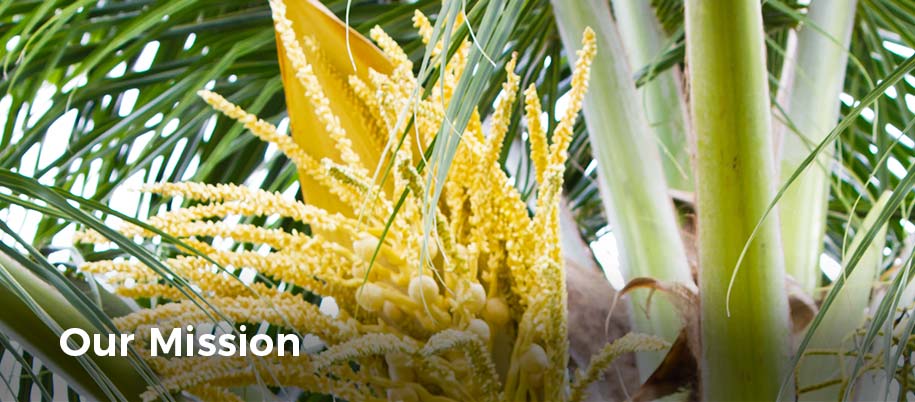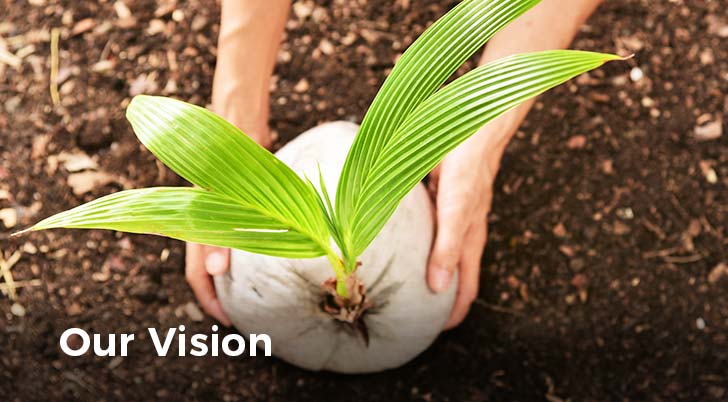The death of soil at the hands of years of conventional agriculture is
manifesting itself as deadly diseases in our bodies. The rising levels
of toxic farm chemicals result in the depletion of nutrient levels in
our food, which in turn can lead to illnesses like cancer, diabetes, and
obesity.
With changing weather patterns, finding methods for conserving the
soil as well as saving water during dry spells and channelling it
properly during downpours have become essential practices.
Generally, coconut lands in Sri Lanka are maintained as monocultures.
Since the very inception of Serendipol, our focus has been on
diversifying coconut farms with seasonal, semi-perennial, and other
intercrops with a view to maximizing land use efficiency,
encouraging biodiversity, and improving biomass generation.
We continuously work with farmers on training and dissemination of effective techniques for taking better care of the earth that we
all depend upon. In addition to our daily practices aimed at regenerating the soil, we are initiating a four-year comprehensive
Agroforestry project, starting with establishing eight model farms that will be part of a pilot project, which will later be rolled out at
scale based on findings from the pilot.


Banana, pineapple, ginger, cinnamon and other inter crops grown between coconut trees to increase biodiversity, reduce pest pressure, and promote sequestration of CO2 into the soil.
Because crops are planted more densely, also generates additional income per acre for farmers.
Bee keeping to encourage pollination of main and inter crops and to support natural habitats.


Productive seedlings placed in between existing trees to receive sufficient sunlight.
Once seedlings are old enough to produce nuts, the neighbouring ageing trees are removed.


Produced and supplied >33 million kg of compost to our farmers at subsidized prices, spending over $450,000.
With our support, some farmers now produce their own compost on-site.
Over half of our farmers allow cattle to graze on their coconut estates—helping to convert weeds and grass into manure, stimulate growth of plant roots, and sequestration of CO2 into biomass.


Vegetative cover with a ground canopy of perennial grasses and other cover cropping species.
Mulching with weeds, leaves, coconut fronds and coconuts husks.
Adding contour drains/bunds.
Burying spongy coconut husks in pits around trees.


Some of our farms have thick canopies, high species diversity, and high biomass generation reducing soil erosion.
In such farms, we observe recycling of leaf litter, sustainability of soil fertility, reduced soil erosion, and improved food security.
Our innovative and comprehensive agroforestry project.


Ensuring traceability of product through personal, verifiable, and transparent relationships with farmers.
Maintaining organic integrity through stringent measures-e.g., GPS-monitored lorries-to avoid commingling at farm, in transit, or in storage.


To help our contract growers improve the fertility and profitability of their estates through natural methods. To be a catalyst of rural development in our host community and our entire project region-in respectful cooperation with our staff, growers and the community at large.
To conceive, develop and produce novel, high-quality value added coconut based products that demonstrate the versatility of this renewable resource. To demonstrate to customers and consumers that operating under our “organic and fair trade” mandate is compatible with the professional and profitable operation of a business.


To be the world’s foremost supplier of certified organic and fair trade coconut products, thus giving our shareholders and customers a reliable, environmentally sustainable and socially responsible source of raw material for their food and body care products.
